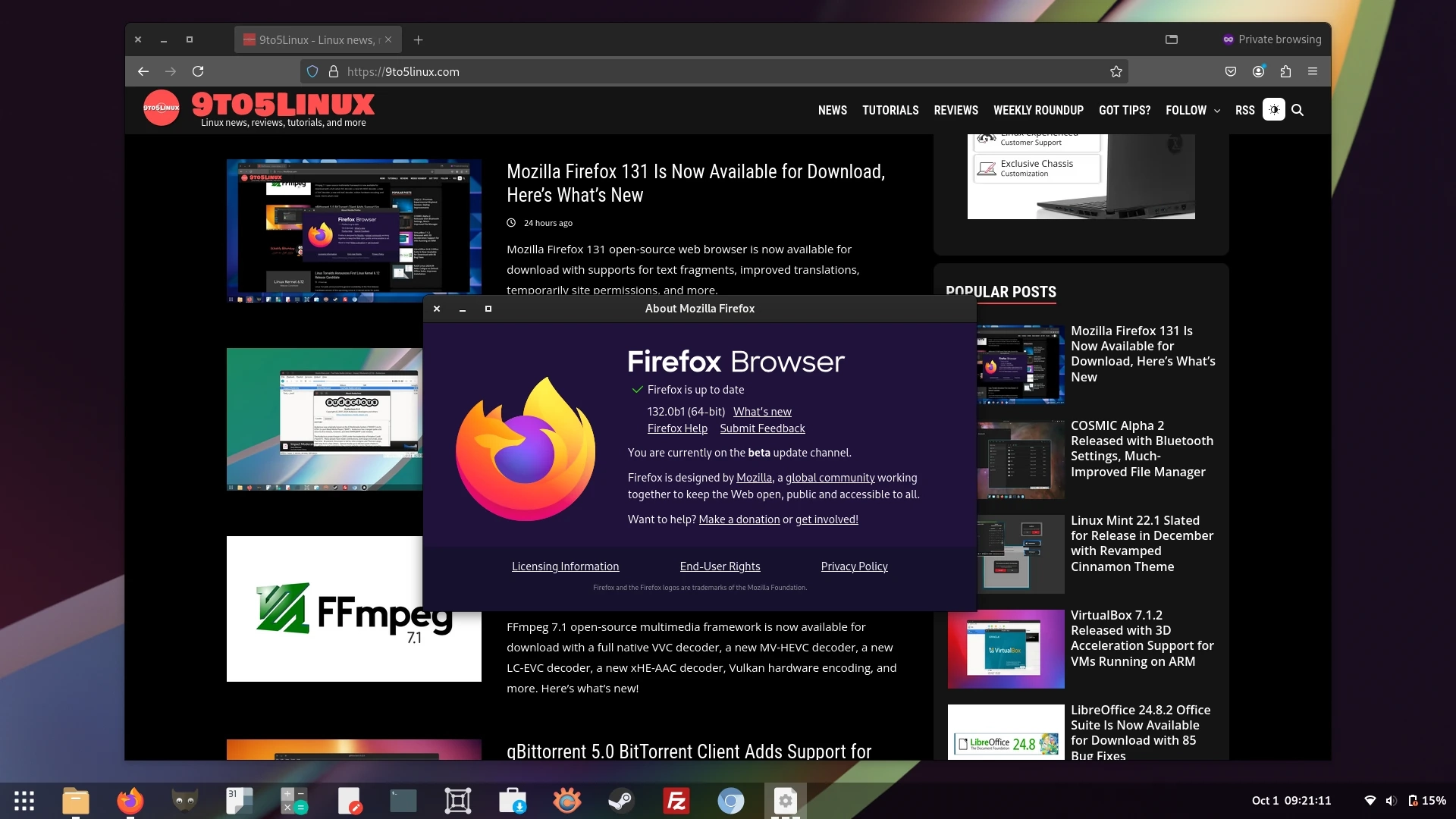With the Firefox 131 release now available for all supported platforms, Mozilla has moved the next significant version, Firefox 132, to the beta channel for public testing.
Firefox 132 is primarily a modest update that introduces features such as blocking third-party cookie access with Enhanced Tracking Protection’s Strict mode, preventing HTTP-favicons from being loaded unless they are served over HTTPS, and enabling WebRender hardware accelerated rendering for most SVG Filter Primitives, which enhances the performance for certain graphics-heavy content.
Moreover, the upcoming Firefox version resolves a problem with the “expire” attribute for cookies by incorporating the time difference between server and local times, and it also eliminates support for the HTTP/2 Push protocol due to compatibility challenges with various sites.
For users on Android, Firefox 132 offers improved functionality by allowing the resizing of the visual viewport of a web page when the software keyboard appears, without changing its layout viewport. Mozilla stated that this update will prevent costly reflows and enhance usability across many web pages.
For web developers, Firefox 132 brings promising enhancements including support for a post-quantum key exchange mechanism for TLS 1.3 (mlkem768x25519). This version introduces the requestVideoFrameCallback() method on the HTMLVideoElement interface, enabling efficient operations on each video frame. It also supports the getCapabilities method that allows applications to retrieve the media capabilities available for the live MediaStreamTrack, along with the fetchpriority attribute.
“The fetchpriority attribute empowers web developers to enhance resource loading by indicating the relative priority of resources for the browser to fetch. It accepts three values: auto (default priority), low (lower priority), and high (higher priority). This attribute can be utilized on script, link, img elements, the RequestInit parameter of the fetch() method, and in Link response headers. The HTML specification allows implementers to define the detailed interpretation of this attribute. Firefox typically uses it to adjust the urgency parameter of HTTP/2 and HTTP/3 requests,” explained Mozilla.
Once again, the much-anticipated Cookie Banner Blocker feature is featured in the beta version, which automatically instructs Firefox to decline cookie banners on your behalf. While its inclusion in the final release remains uncertain, we’re hopeful.
Mozilla is set to unveil Firefox 132 on October 29th, 2024, alongside Firefox 128.4 and Firefox 115.17 ESR versions. In the meantime, you can experience the latest Firefox 132 beta by downloading the binaries from the official website. Please note that this is a pre-release version and is not suitable for production use, as it may result in data loss.
Last updated 9 hours ago
